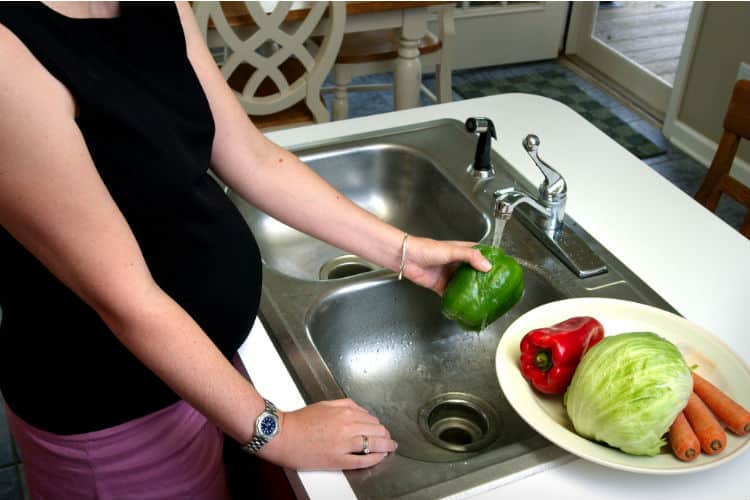Did you read the first part? Eating Well for a Healthy Pregnancy?
A pregnant woman doesn’t have to eat for two! That’s a timeless myth.
It’s true that a mother provides her baby with the nutrients they need to develop. However, you never have to double your food quantities to meet both the mother’s and baby’s needs. That’s why it’s essential for a pregnant woman to have a diet with high nutritional quality.
According to the recently revised Canadian Food Guide, every person should have a balanced diet and eat a variety of foods every day. This includes pregnant and breastfeeding women:
- Eat a lot of fruits and vegetables;
- Eat high protein foods (meat, dairy products, nuts, legumes, tofu, fish, eggs, etc.);
- Choose foods with whole grains;
- Make water your drink of choice.
Even if dairy products are no longer a specific category in the new guide, pregnant and breastfeeding women need to consume dairy products to ensure their daily intake of calcium, vitamin D and phosphorus is sufficient for the growth of the baby’s bones and teeth. Dairy products can be added to a meal or taken as a snack very easily. It is best to choose it with a low fat, sugar and sodium content.
Caloric Needs During Pregnancy
At the start of pregnancy, the number of calories needed is the same as before. However, starting from the 15th week (2nd and 3rd Trimester), it’s recommended that you increase your nutritional and energy intake to deal with the physiological changes inherent to pregnancy. The increase in blood volume, the growth of tissues, the development of the fetus and the preparation for lactation increase caloric needs.
To handle these metabolic changes associated with pregnancy progression, pregnant women are advised to increase their number of calories in their diet by:
- 350 calories during their 2nd trimester;
- 450 calories during the last three months.
Every woman should allow their appetite to guide their caloric intake based on their energy expenditures, age and physical condition. That’s why we talk about the average recommended caloric values rather than strict standards for each woman. Please read the article Weight Gain During Pregnancy.
To avoid gaining too much weight, always consume unsaturated fats, limit sugar as much as possible and eat highly nutritious foods that can be fresh, frozen, canned or dried.
To continue reading this article, go to Pregnancy Essentials: Proteins, Folates, Calcium, etc.


